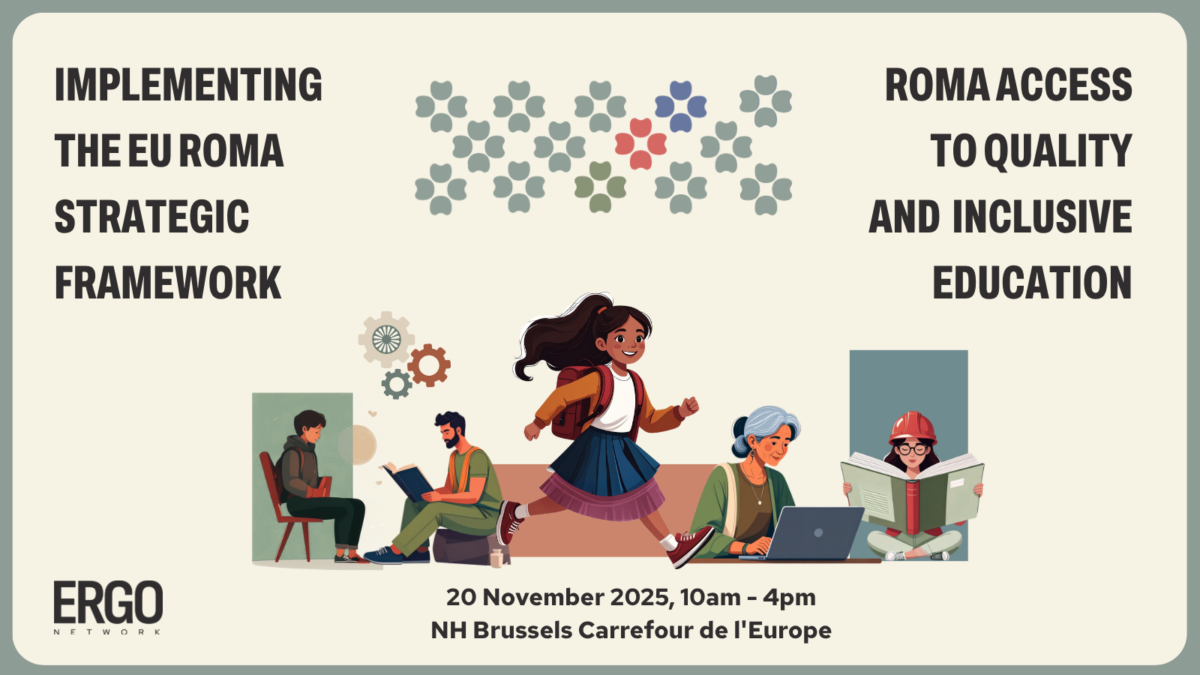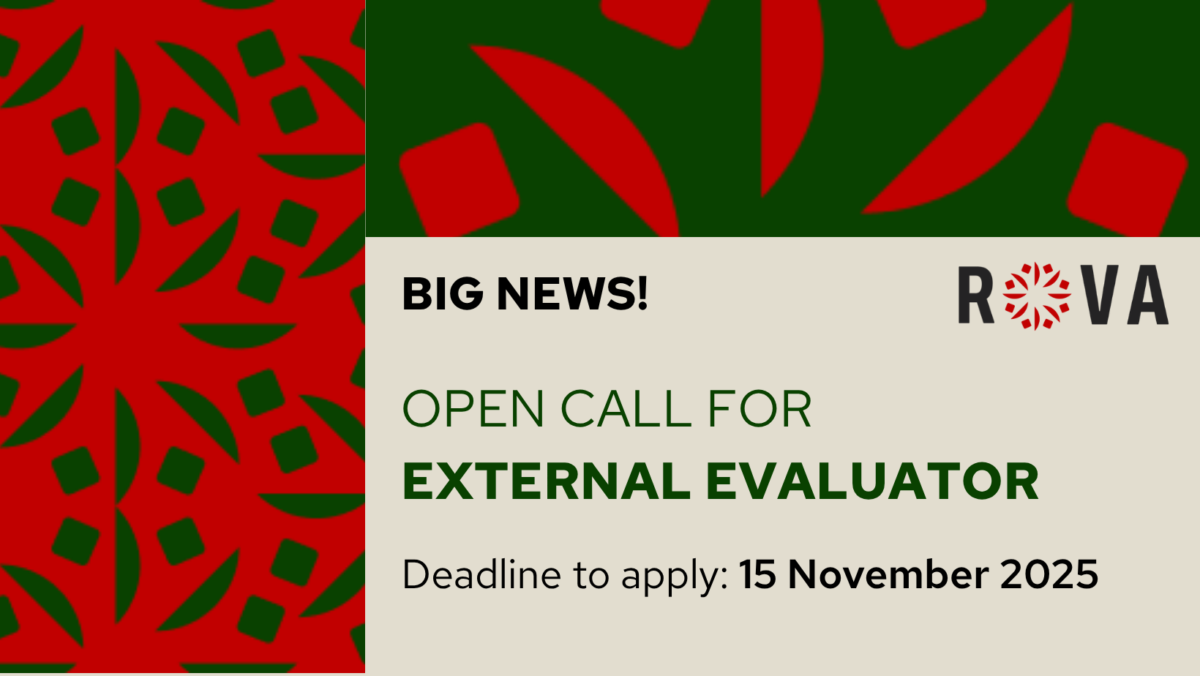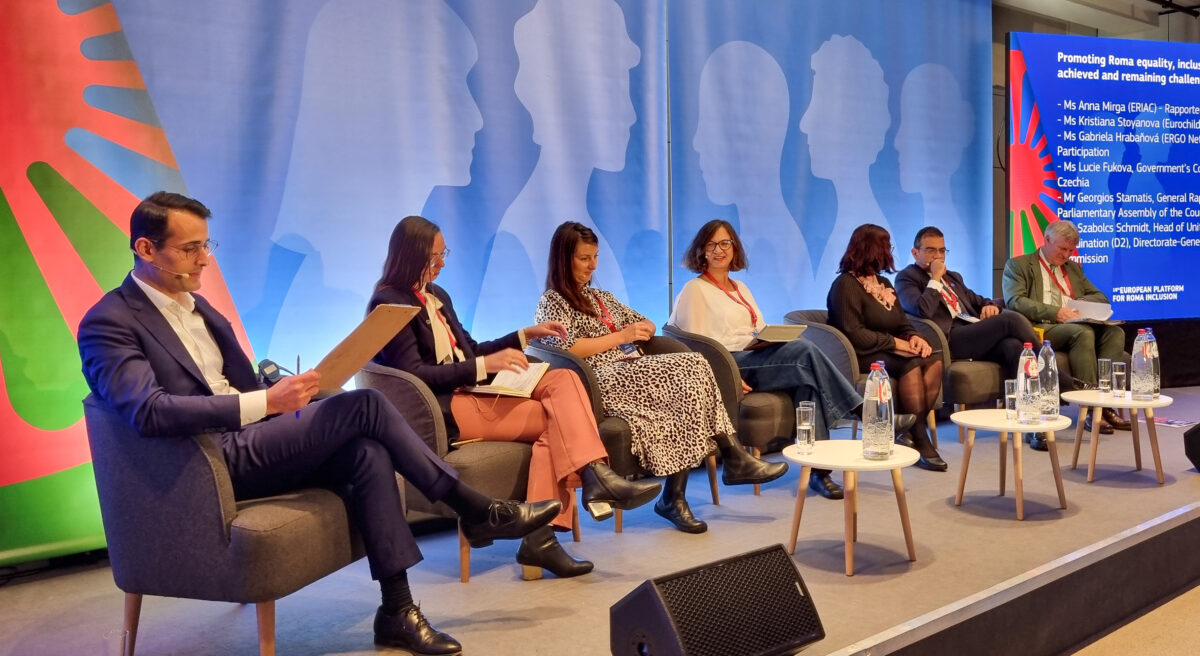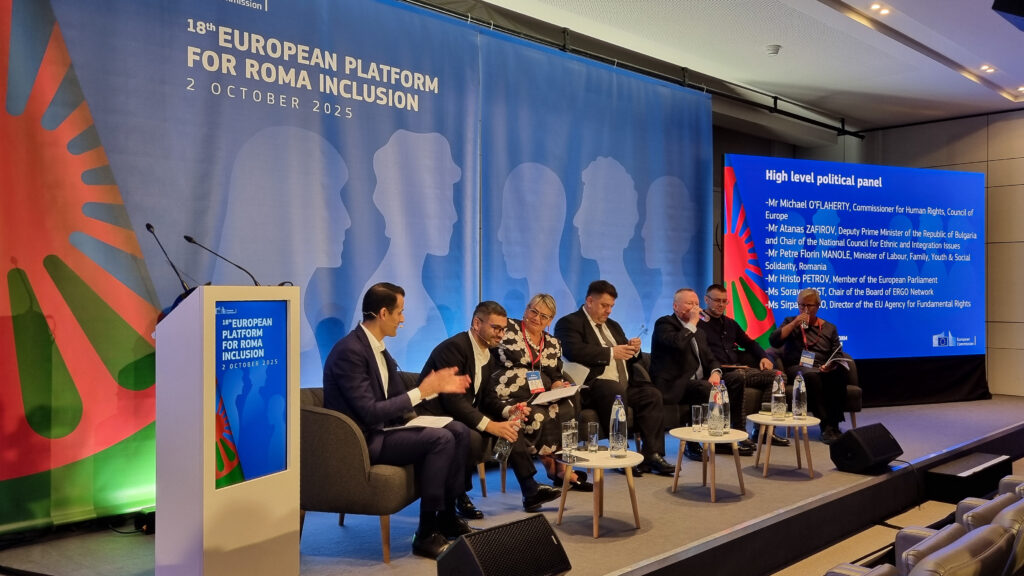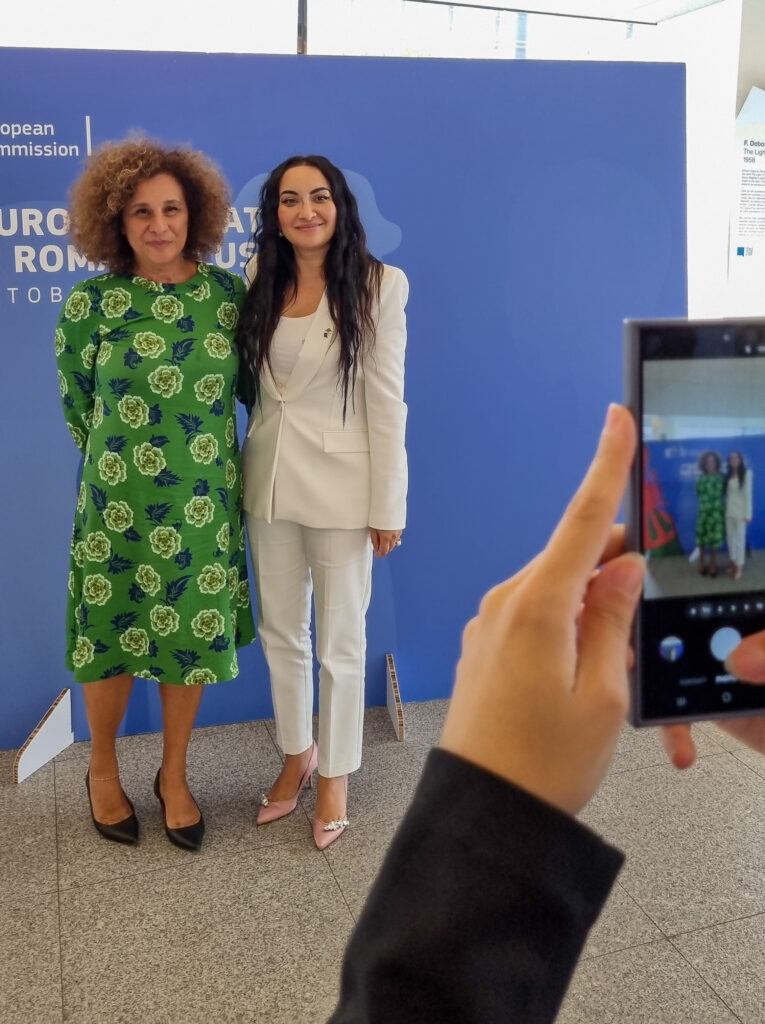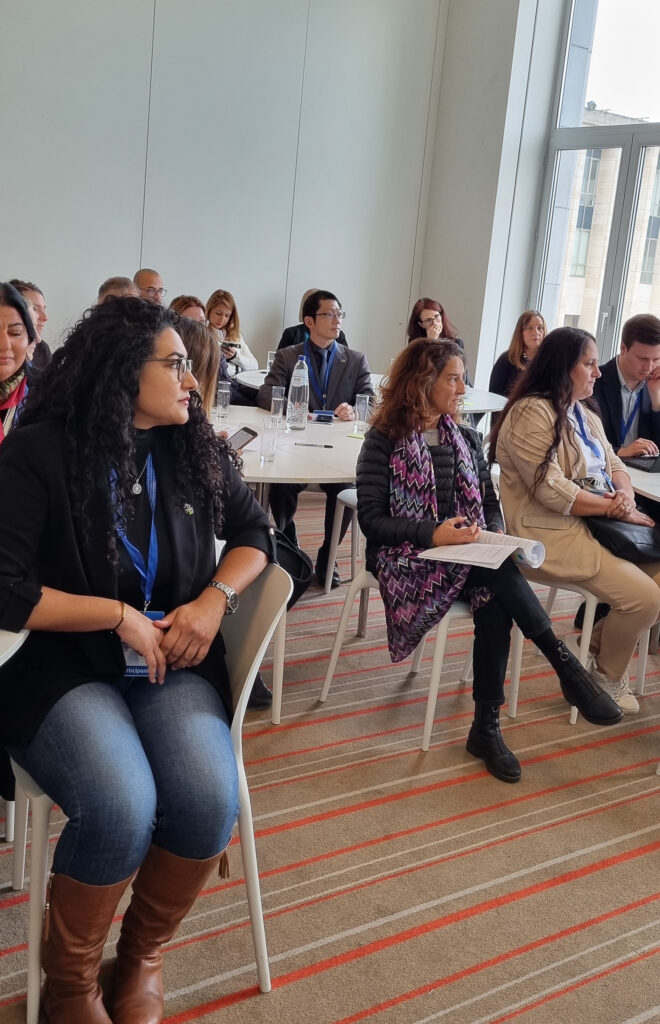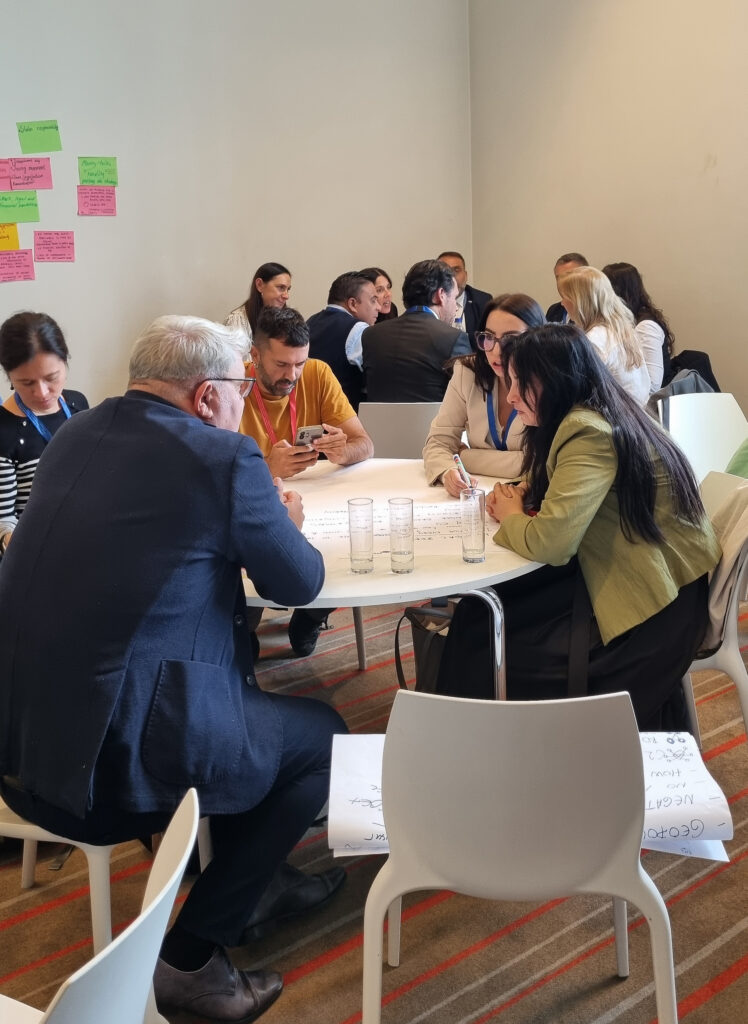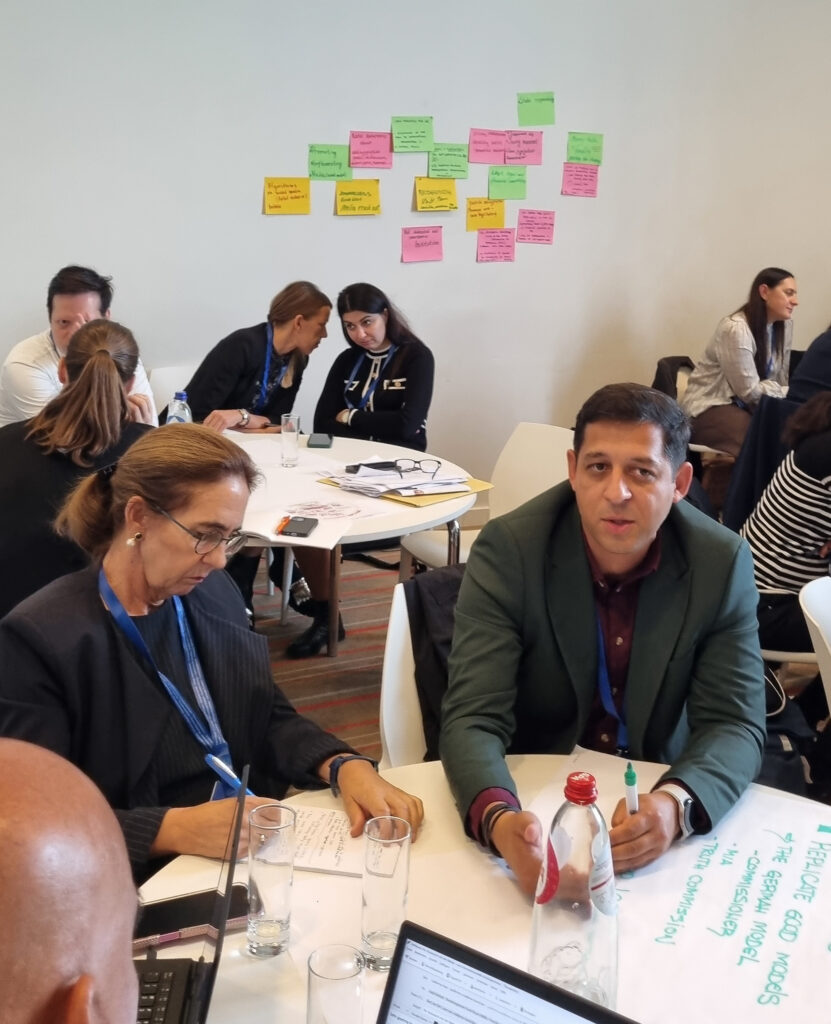ERGO Network Annual Policy Conference:
Implementing the EU Roma Strategic Framework
Roma access to quality and inclusive education
20 November, 10h – 16h30, NH Carrefour de l’Europe, Brussels
Join us for our Annual Policy Conference 2025!
At a time when Europe is confronted by war at its borders, the ongoing cost of living crisis, and political instability, its Roma find themselves facing worsening poverty and exclusion, dire living conditions, and widespread antigypsyism every day.
The Policy Conference will serve to launch ERGO Network’s research report on “Roma access to quality and inclusive education”, based on six national case studies carried out in Bulgaria, the Czech Republic, Hungary, Romania, Slovakia, and Spain, with additional benchmarking evidence from Ireland and Sweden.
The event will also provide insights into the implementation of the National Roma Frameworks in the EU and enlargement countries, ahead of the European Commission’s 2026 progress report. It will, furthermore, reflect on complementarities with Council of Europe standards, drawing on findings from ERGO Network’s 2025 data collection exercise.
The conference will bring together ERGO Network members from the grassroots level, EU policy-makers from across the institutional spectrum, as well as other relevant European and national stakeholders.
Please save this date in your calendars! The agenda and registration link will follow soon!
We’re looking forward to counting you among the participants, so that together we can build positive, sustainable, evidence-based policy solutions that work.
#ERGOConference2025
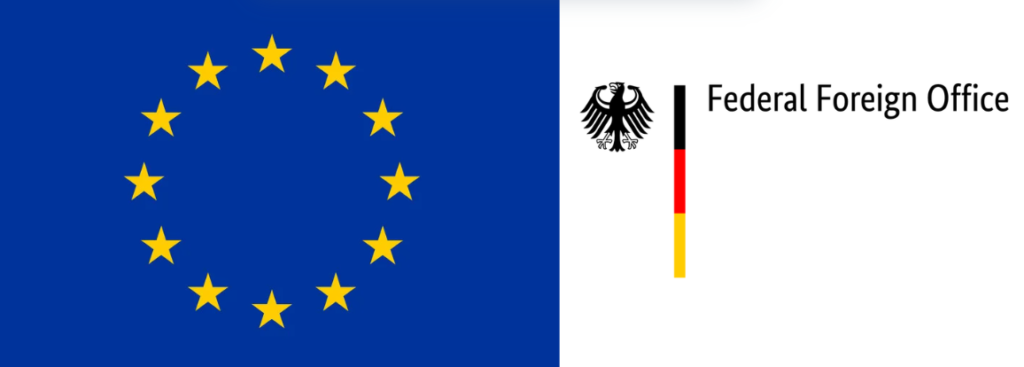
This conference is kindly supported by the European Union Programme for Citizens, Equality, Rights and Values (CERV) and by the German Federal Foreign Office.

